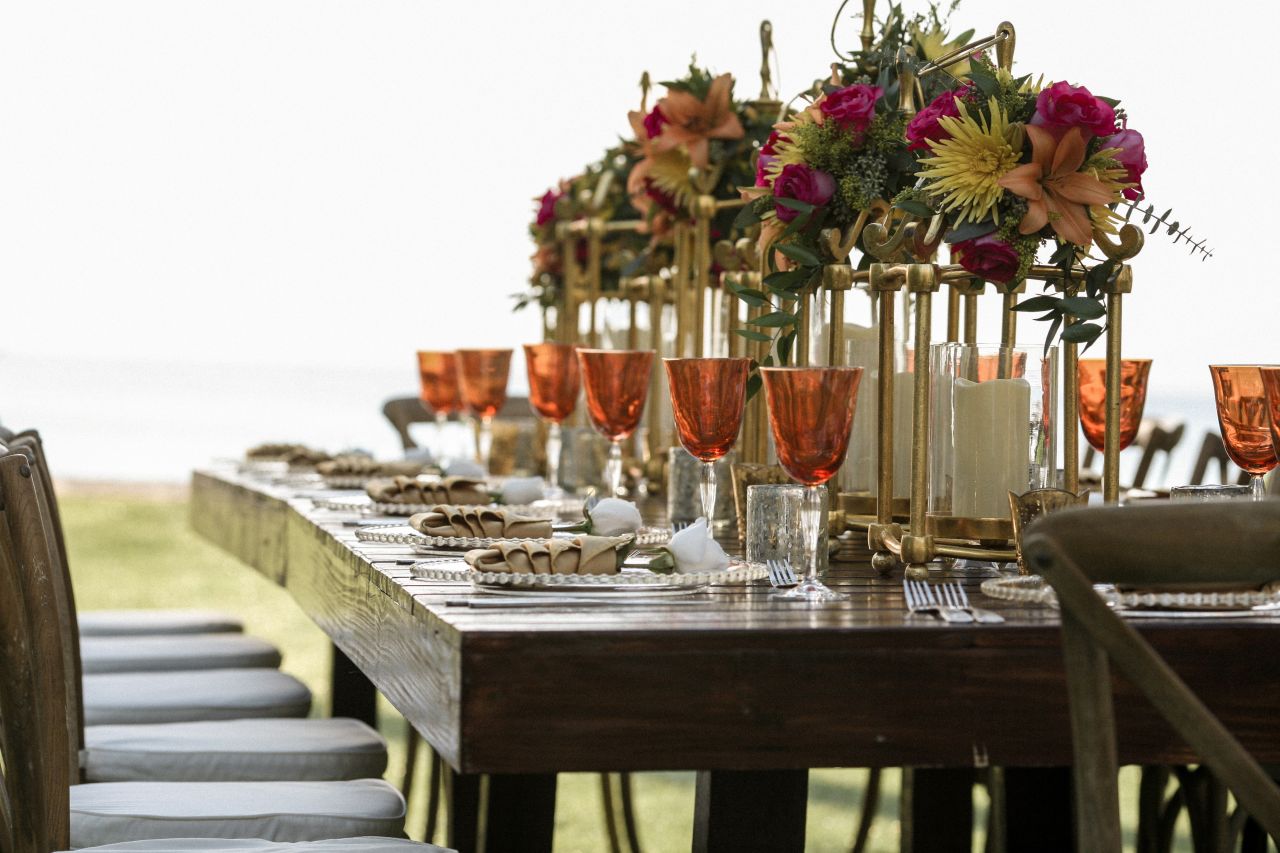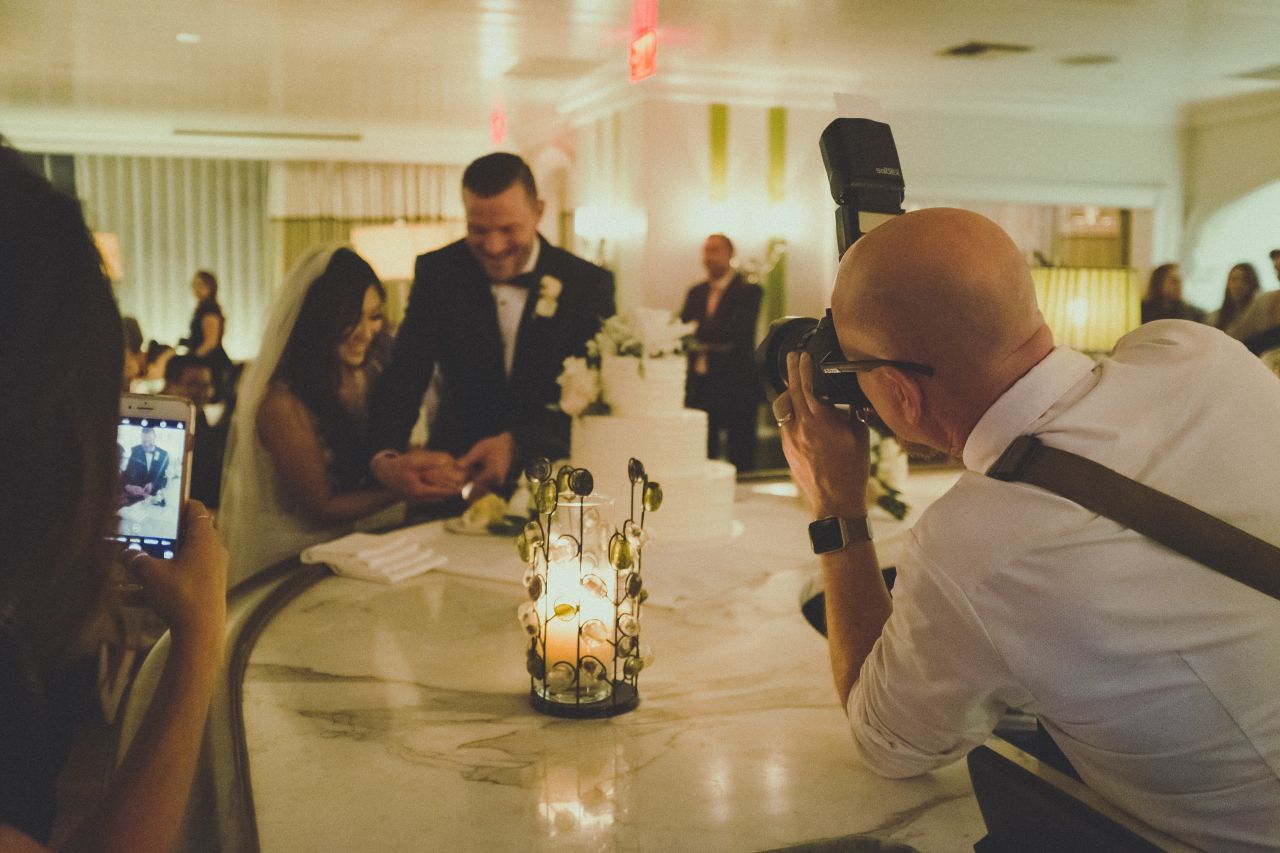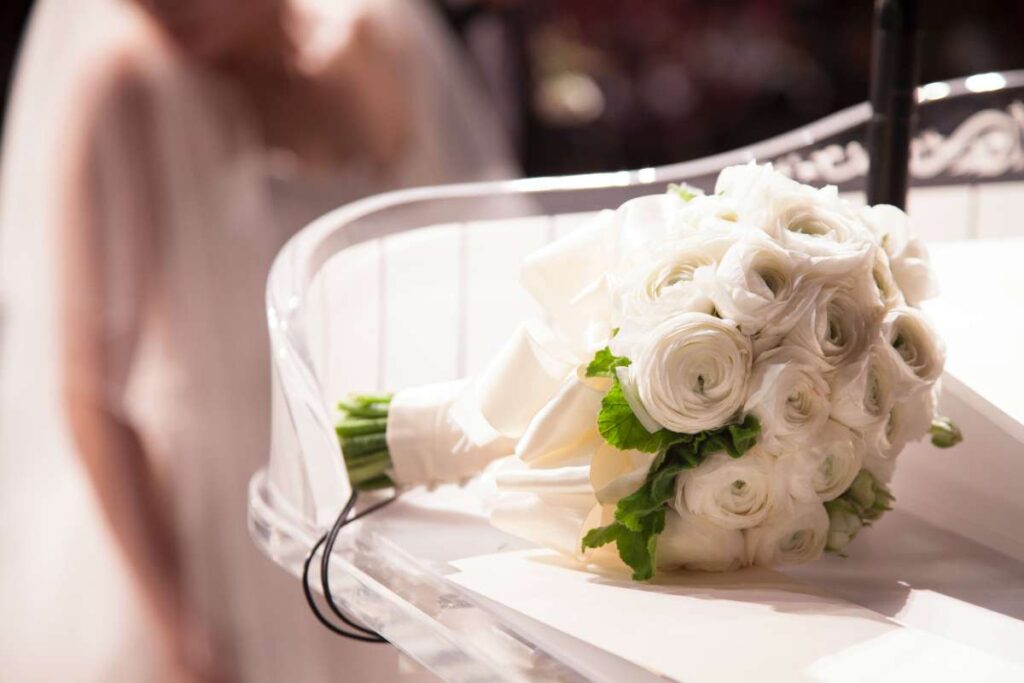Some background information is useful when beginning the wedding planning process (like the hottest wedding colours of the year). Then there are the things you really must know, nuggets of wisdom so valuable that any bride who is fortunate enough to hear them will exclaim, "I'm so pleased someone told me that!"
Prioritising Visitors

Before deciding on a location, you should have a good idea of how many people you plan to invite. This will make sure that you have enough room for your team. Plan on about 35 square feet of space per visitor. You'll need a lot more room than that to accommodate the guests, the food, the music, and the dancing.
Learn More About No-Wedding Dates
Find out in advance if your wedding date coincides with a charity walk, a tradeshow or any other event that may affect travel plans and hotel availability. Guests should make hotel reservations as soon as possible if your wedding date falls during a peak travel period.
Honour Nature By Listening To It
You should take the weather and any potential disruptions into account. Visitors have been known to bail on summer tent weddings and winter loft parties due to the extreme heat. If you want to get married outside, prepare for rain by having a backup plan ready. In addition, Vogue Ballroom can help you time your vows so that they are exchanged as the sun sets.
Investigate Your Credit Report
Apply for a credit card with a rewards programme and take advantage of the high expense of weddings (you read it right). Consolidating all of your wedding-related spending onto one credit card will help you earn thousands of rewards points, whether they're in the form of airline miles or discounts at your favourite retailers (good as honeymoon destinations).
Don't Forget To Pass It On
Take the advice of your first vendor and go from there. The photographer can recommend a great florist, and the person in charge of the reception can let you know who always gets people dancing. As an added bonus, when your wedding vendors are familiar with one another, they can more easily share design inspiration and discuss the day-of logistics, resulting in a more unified aesthetic for your wedding.
Reduce The Weight Of Your List
If you want to save the most money on your wedding, what should you do? Scale back on the invites. That may sound impossible to you, what with your big family and distant friends, but hear us out. The cost of feeding your wedding guests might easily exceed your total budget. If each seat at the table costs $120, then getting rid of only one whole table can save you $1,200. You have saved yourself hundreds, if not thousands of dollars by eliminating the need for a flower centrepiece, 12 place setting rentals, 12 invites, 12 favours, and so on.
Create A Menu Strategy
Yet another out-of-pocket cost? Serving food to guests on your wedding day. You must always plan to feed your vendors, even if it isn't in the contract, unless you like the thought of a hungry and dizzy photographer. Find them if they want the same dinner as your visitors or something else that's just as hearty. This is something you need to know before committing to a contract.
Focus On Organisational Details
Establish your online checklist, budget, and guest list manager before you meet with suppliers or sign any payments. Acquire a three-ring binder to store all of your vendor-related materials in, including meeting notes, emails, and any images or magazine clippings you plan on showing off to potential partners. In addition, you should create a special wedding-related email address (to access wedding-related emails).
Free Up Some Cash In Your Pocket.
For a ballpark figure, here's what you should aim for when planning your wedding budget: Budget between 48% and 50% for the reception; 10% for flowers; 10% for clothes; 10% for music/entertainment; 15% for photos/videos; 5% for announcements; 4% for favours; and 7% for other expenses like a wedding planner. To cover unexpected costs like printing more invitations due to faults, extra tailoring demands, umbrellas in case of rain, and ribbons for the wedding programmes, it is recommended to set aside an additional 5% to 10% of your budget.
Please Don't Be Hesitant To Inquire
If you locate a great vendor but they don't fit into your budget, it's always a good idea to ask for referrals from them. Amazing photographers frequently have assistants (who share their taste) who are willing to work for less pay. A similar principle applies to various classifications. If your go-to flower shop is priced out of your range, ask if she knows of any promising newcomers in the area.
Implement A Child Equity Policy
You can have a kid-friendly wedding, a "adults only" wedding, a family-only wedding, or a child development organisation can provide full daycare at the conference center, a hotel room, or a relative's home. Some families bring kids whereas others not could cause friction. (unless the kids are part of the bridal party, of course).
Make Your People A Priority
Using the "levels of importance" method, you can reduce the number of people invited. Prioritise those who will be the most emotionally invested in your happiness on your wedding day: your parents, siblings, and close friends. Make a list of people your parents know, such as friends, neighbours, coworkers, etc. If reductions are necessary, they should be made in reverse order from the largest to the smallest.
Releasing Spaces
You should start looking for rooms in a wide pricing range as soon as you decide on a date. Oftentimes, you can arrange a block of rooms at a hotel and get a special deal for your wedding guests if you tell them you're holding a wedding there. If there are any rooms left over a month before the wedding, you can release them. You shouldn't feel obligated to pay for unoccupied hotel rooms, so if the hotels you call want a contract with cancellation penalties, politely decline.
Deliver Reliable Route Instructions
Instruct visitors to the venue on how to get where they're going. Despite the convenience of online map services, you may find that your destination isn't where you thought it would be or that an alternate route is faster or has less traffic. Wedding venues usually have printed directions on hand for guests to use to get to the reception and ceremony, so you may request them and try them out before the big day.
Document Everything

If you need to make any adjustments to your agreement that aren't normal, do it in writing or via email to the provider. For example: "Hello, just verifying that you'll keep the venue open until 1 a.m. instead of midnight." Don't put too much faith in people's word of honour; by the time your wedding day arrives, your contact may no longer be employed there to vouch for you.
Sort Your Money
The key to a successful wedding budget is moderation. Making a list of the most important aspects of the wedding, from the music to the dress to the invitations to the flowers to the photographer, will help you prioritise your spending as you plan your budget. Spend lavishly on priorities and economise where possible. (But obviously not everything fits into the top spot!) If a designer gown and gourmet food are your top priorities, for instance, you may have to settle for less elaborate invites and smaller flower arrangements.
Celebrate More Vibrantly
Be sure that everyone in the room can hear and be heard. You might think about renting a mic and a riser if your ceremony attendees will be situated more than 17 rows away from the altar or platform. Depending on the tools required, this might cost anywhere from $80 to $800. Get your wedding planner or best man in charge of coordinating delivery and setup with the ceremony location.
Raise The Style Authority
You shouldn't go dress shopping without someone to help you decide since after a time all the gowns will start to seem the same and you won't be able to remember which style you liked best. But pick your companions wisely. If your mum or brother or sister can't make it, ask a trustworthy friend to come instead. The time has come to decide which dress will make you seem your finest.
Take Note Of The Numbers
Keep a list of important contacts on hand on your wedding day. You should carry a list with all of your vendors' contact information and provide copies to the people in your bridal party. We guarantee that you will find this information useful.
Do Not Waste Your Time.
In the final planning month, when you're feeling really pressed for time, review your mile-long list of tasks and eliminate three of them. Delete the third item, please. But don't put off doing important things like choosing a processional song or finalising plans with all of your vendors because you're not in the mood. Tasks like hand-painting "Just Married" signs or preparing cookies for everyone's welcome bags are unnecessary and can be cut. Make a pact with yourself that you won't bring them into your mind again.
Conclusion
Think about the possibility of bad weather and other disturbances while selecting a wedding venue. If you're planning an outdoor wedding, make sure you have a contingency plan in case it rains. If you want to exchange your vows as the sun goes down, Vogue Ballroom can help you plan the ceremony. Your overall spending may go over if you decide to feed all of your wedding guests. If you had to pay $120 each person to sit down at a table, eliminating that table will result in a save of $1,200.
Before you schedule a meeting with your vendors, create an online checklist, budget, and guest list manager. Find photographers who are willing to work for less money and ask them for recommendations. On your wedding day, it's important to spend time with the people that care about you the most emotionally. By notifying the hotel that you will be conducting a wedding there, you can reserve a block of rooms at a discounted rate for your guests. Moderation is the name of the game when it comes to wedding budgets.
Don't skimp on what's most important and waste money where it's not. For instance, if you have your heart set on a designer dress and gourmet food, you may have to forego more lavish invitations and smaller flower arrangements. If the guests at your wedding are sitting more than 17 rows back from the altar or platform, you may want to consider renting a microphone and a riser. You and the other members of the wedding party should both carry and distribute a list of all relevant vendor contact details. Take a look at that mammoth list you made and see if you can cross three things off. Don't wait until you're feeling motivated to select a processional song or finalise other arrangements.
Content Summary
- When starting the process of arranging a wedding, it is helpful to have some context (like the hottest wedding colours of the year).
- Promoting the Interest of Guests Have a rough headcount of expected attendees before settling on a venue.
- This will guarantee that your squad has adequate space.
- Think about giving each guest roughly 35 square feet.
- If your wedding date is during a popular travel time, guests are encouraged to book their accommodations early.
- If you're planning an outdoor wedding, make sure you have a contingency plan in case it rains.
- Examine Your Credit Report.
- Take advantage of the hefty cost of weddings by applying for a credit card with a rewards programme (you read it right).
- Lighten Your Load of To-Dos
- Minimize the number of people you invite.
- Your overall spending may go over if you decide to feed all of your wedding guests.
- Having the reception meal served to your guests.
- You should know this before entering into any legal binding agreements.
- If you find a fantastic vendor but they are priced out of your range, don't be afraid to ask for recommendations.
- Freeing Up Rooms
- As soon as you choose on a date, begin your search for rooms in a variety of price ranges.
- If you notify a hotel you're having a wedding there, they may be willing to give you a discount on a block of rooms for your guests.
- Changes to your agreement outside the standard should be communicated to the provider in writing or by email.
- Get Your Finances in Order
- Moderation is the name of the game when it comes to wedding budgets.
- You can prioritise your spending by writing down the items that are most important to you, such as the music, the dress, the invites, the flowers, and the photographer.
- Don't skimp on what's most important and waste money where it's not.
- Put the best man or wedding planner in charge of arranging delivery and setup at the ceremony site.
- To Raise One's Status as a Fashion Authority
- It's not a good idea to go dress shopping alone, because after a while all the gowns will start to seem the same, and you won't be able to recall which style you liked best.
- But be selective in your choice of friends.
- Now is the time to choose the dress that will highlight your best features.
- Think About the Statistics
- On the big day, be sure to have a list of key contacts handy.
- You and the other members of the wedding party should both carry and distribute a list of all relevant vendor contact details.
- Don't Waste Your Time.
- In the last month of preparation, when you're feeling the time crunch the most, go through your seemingly endless list of to-dos and cross off three of them.
- Nonetheless, don't put off picking a processional song or finalising preparations with all of your vendors just because you're not feeling it.
FAQs About Wedding Planning
Location & Venue. One of the most important decisions you will make while planning your wedding is where to hold the ceremony and reception. With so many wedding venues available, you'd think choosing one would be simple, but it never is.
- Dream – get the vision for your big day.
- Determine what's most important to you.
- Set a wedding budget.
- Form your wedding party.
- Create your guest list.
- Determine dates.
- Start looking for your dream venue.
- Begin looking into the vendors you want for your wedding day.
“I would say the general consensus is one year in advance is enough time to plan your standard, local wedding," says award-winning planner Nicole-Natassha Goulding. This time frame gives couples an ample window to book a venue, hire necessary vendors, find a wedding dress, and more.
Based on a typical engagement length of 10 to 18 months, wedding planner Amy Nichols says that couples who are not working with a planner will spend between 200 to 300 hours planning their wedding. That's the equivalent of eight to twelve full days.
The tradition is based on an Old English rhyme that dates back to 19th-century Lancashire. It describes the items a bride should have on her wedding day: "something old, something new, something borrowed, something blue, a sixpence in your shoe."

